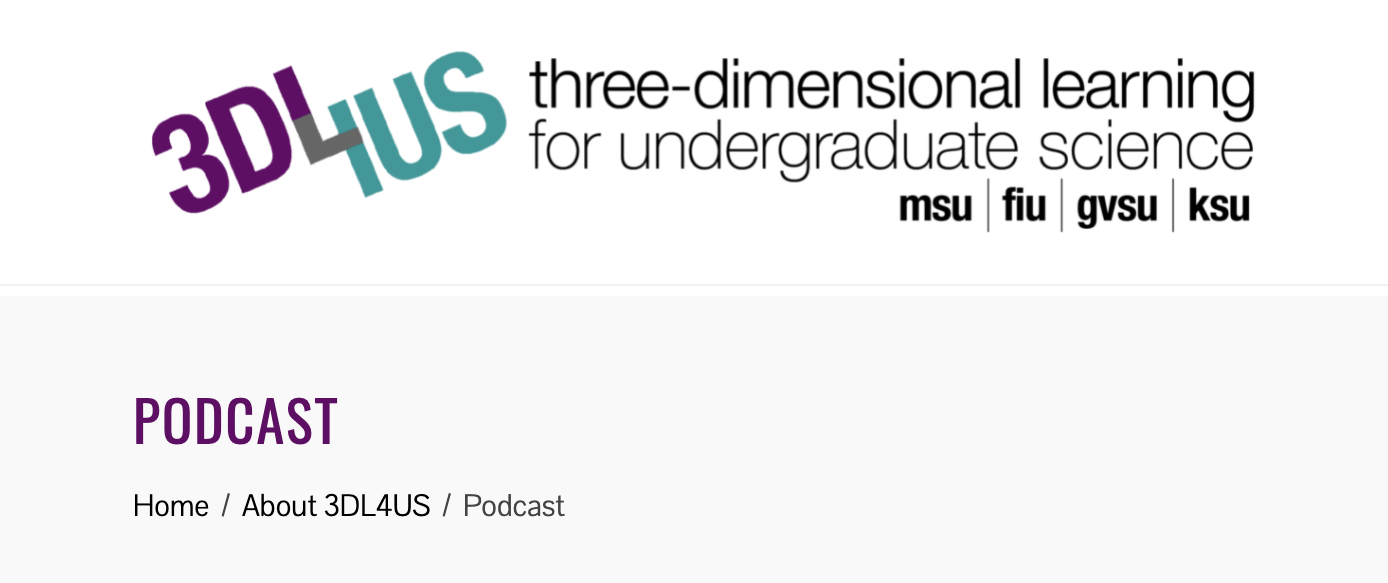Three-dimensional learning (3DL) in STEM education is a model described in the National Research Council’s Framework for K-12 Science Education, a document outlining a research-based approach toward facilitating a coherent, in-depth understanding of the sciences for K-12 students. 3DL posits that teaching and learning of a scientific discipline should involve three features:
- disciplinary core ideas (the fundamental themes at the center of a scientific discipline),
- crosscutting concepts (ideas that span across disciplines), and
- scientific practices (the skills that scientists use to study and make sense of the world).
The 3DL for Undergraduate Science (3DL4US) project has adapted this framework for teaching and learning at the university level, with a particular emphasis on transforming introductory (“gateway”) courses in biology, chemistry, and physics.
3DL4US has created an amazing - and entertaining - series of podcasts featuring many of our STEM colleagues at MSU!
Learn more about project and team


